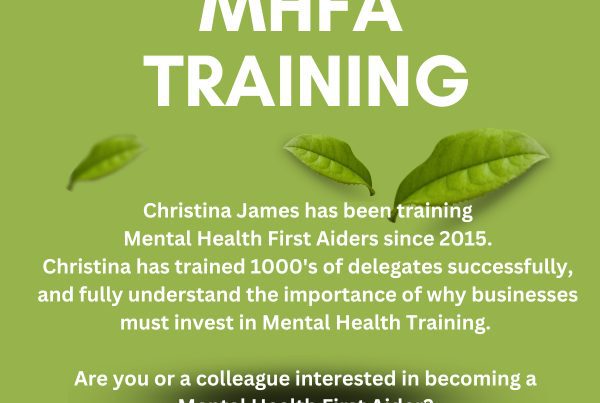In our fast-paced, unpredictable world, the desire to exert control over our environment and choices is a fundamental aspect of human nature. The research encapsulated in “Born to Choose: The Origins and Value of the Need for Control” sheds light on why this need exists, its evolutionary roots, and its profound influence on mental health. Understanding this connection can help us foster better psychological well-being and develop more compassionate approaches to mental health challenges.
The Evolutionary Roots of the Need for Control
The desire for control is not merely a modern psychological phenomenon; it has deep evolutionary origins. According to recent research, the need to influence our environment enhances our chances of survival and reproductive success. Early humans who could predict and manipulate their surroundings—such as choosing safe shelter, securing food, or avoiding predators—had a better chance of thriving.
Studies in behavioral science suggest that the need for control is hardwired into our brain’s architecture, particularly within the prefrontal cortex, which is responsible for decision-making and planning. This innate drive appears to be universal across cultures and age groups, emphasizing its fundamental role in human existence.
The Psychological Function of Control
Control serves several vital psychological functions. Primarily, it provides a sense of agency—a feeling that one’s actions can influence outcomes. This sense of agency is crucial for motivation, goal-setting, and perseverance. When individuals perceive they have control, they are more likely to engage in proactive behaviors, recover from setbacks, and maintain resilience.
Conversely, a perceived lack of control can lead to feelings of helplessness and despair. The phenomenon of learned helplessness, first identified by psychologist Martin Seligman, illustrates how repeated exposure to uncontrollable events can diminish motivation and foster depressive symptoms. This research underscores the importance of perceived control in maintaining mental health.
The Dual Nature of the Need for Control
While the need for control is essential, it operates on a delicate balance. Excessive desire for control—perfectionism or obsessive-compulsiveness—can contribute to anxiety disorders, obsessive-compulsive disorder (OCD), and stress-related illnesses. On the other hand, too little perceived control, as seen in depression and post-traumatic stress disorder (PTSD), can lead to feelings of powerlessness and despair.
This duality suggests that mental health is closely tied to how individuals regulate their need for control. Flexibility—being able to adapt one’s sense of control to different situations—appears to be a key factor in psychological resilience.
Control and Mental Health: The Evidence
Anxiety and the Need for Certainty
Research indicates that individuals with anxiety disorders often exhibit an exaggerated need for control. They seek certainty and predictability to mitigate their fears. For example, compulsive behaviors such as checking or cleaning may serve as attempts to establish control over perceived threats.
Depression and Helplessness
In depression, a core feature is feelings of helplessness and a diminished sense of agency. Studies have shown that individuals who believe they have little control over their circumstances are more prone to depressive symptoms. Interventions that restore a sense of mastery—such as behavioral activation—are effective in treating depression.
Trauma and PTSD
Trauma survivors frequently grapple with shattered perceptions of control. The loss of agency during traumatic events can lead to persistent feelings of vulnerability and helplessness. Therapeutic approaches that help restore a sense of control, such as trauma-focused cognitive-behavioral therapy (TF-CBT), have demonstrated efficacy.
Resilience and Control
Interestingly, resilience—the ability to recover from adversity—is linked to a balanced need for control. Resilient individuals tend to accept that some aspects of life are uncontrollable while maintaining a proactive stance over what they can influence. This adaptive mindset fosters emotional stability and mental health.
Cultivating Healthy Control for Better Mental Well-Being
Understanding the importance of control opens pathways for enhancing mental health through behavioral and therapeutic strategies:
-
Developing Mindfulness and Acceptance: Mindfulness practices encourage acceptance of uncontrollable aspects of life, reducing anxiety and stress. Acceptance and Commitment Therapy (ACT) emphasizes embracing uncertainty while committing to valued actions.
-
Building Self-Efficacy: Setting achievable goals and celebrating small victories bolster a sense of mastery. Cognitive-behavioral techniques can help reframe negative thoughts about control and empower individuals.
-
Enhancing Resilience: Teaching coping skills and promoting flexibility in how people perceive control can increase resilience. Encouraging a growth mindset, where setbacks are viewed as opportunities for learning, fosters adaptive control.
-
Addressing Maladaptive Control Needs: For those with obsessive tendencies or perfectionism, therapy can help modulate the desire for control, reducing associated anxiety and compulsive behaviors.
Final Thoughts
The research highlighted in “Born to Choose: The Origins and Value of the Need for Control” underscores that the desire for control is a fundamental aspect of human nature—rooted in our evolutionary past and vital for psychological functioning. While an appropriate need for control can foster motivation, resilience, and a sense of agency, an imbalance—whether excessive or insufficient—can contribute to various mental health challenges.
By understanding and regulating our need for control, we can cultivate healthier mental states, foster resilience, and navigate life’s uncertainties with greater ease. For mental health professionals, integrating these insights offers a pathway to more nuanced, compassionate, and effective care.
References:
-
Seligman, M. E. P. (1975). Learned helplessness. Journal of Abnormal Psychology, 84(3), 238–248.
-
Bandura, A. (1997). Self-efficacy: The exercise of control. W. H. Freeman.
-
Kashdan, T. B., & Steger, M. F. (2006). Minding the positive: A review of the positive psychology literature. Journal of Positive Psychology, 1(2), 75–83.
-
Foa, E. B., & Kozak, M. J. (1986). Emotional processing of fear: Exposure to corrective information. Psychological Bulletin, 99(1), 20–35.
Booking a Mental Health Wellbeing Course with Sanitas Hub
Mental Health Consultancy in the Workplace
For further inquiries, company group training or mental health consultancy please do not hesitate to get in touch at info@sanitashub.co.uk





